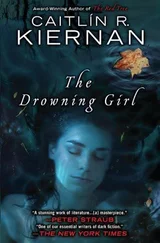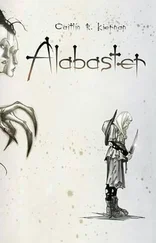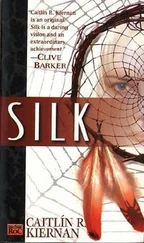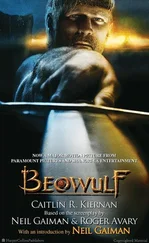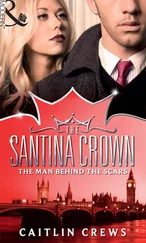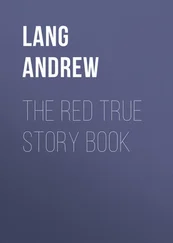Caitlin R. Kiernan - The Red Tree
Здесь есть возможность читать онлайн «Caitlin R. Kiernan - The Red Tree» весь текст электронной книги совершенно бесплатно (целиком полную версию без сокращений). В некоторых случаях можно слушать аудио, скачать через торрент в формате fb2 и присутствует краткое содержание. Жанр: Ужасы и Мистика, на английском языке. Описание произведения, (предисловие) а так же отзывы посетителей доступны на портале библиотеки ЛибКат.
- Название:The Red Tree
- Автор:
- Жанр:
- Год:неизвестен
- ISBN:нет данных
- Рейтинг книги:3 / 5. Голосов: 1
-
Избранное:Добавить в избранное
- Отзывы:
-
Ваша оценка:
- 60
- 1
- 2
- 3
- 4
- 5
The Red Tree: краткое содержание, описание и аннотация
Предлагаем к чтению аннотацию, описание, краткое содержание или предисловие (зависит от того, что написал сам автор книги «The Red Tree»). Если вы не нашли необходимую информацию о книге — напишите в комментариях, мы постараемся отыскать её.
The Red Tree — читать онлайн бесплатно полную книгу (весь текст) целиком
Ниже представлен текст книги, разбитый по страницам. Система сохранения места последней прочитанной страницы, позволяет с удобством читать онлайн бесплатно книгу «The Red Tree», без необходимости каждый раз заново искать на чём Вы остановились. Поставьте закладку, и сможете в любой момент перейти на страницу, на которой закончили чтение.
Интервал:
Закладка:
As I’ve said, the same day I visited the Wight Farm and saw the red tree for myself, I stopped by the Tyler Free Library in Moosup Valley. The small white building is hardly a quarter mile northeast of the old farm, and I knew that Sarah had visited it several times in those final months. More than anything, I think I was curious to see if this modest country library had any of her books, and I was pleasantly surprised to find that they did have on their shelves a single copy of her second short-story collection, Silent Riots [10] HarperCollins, 1998
.I took it to a reading table and flipped through the pages, a little embarrassed that, though I was her present editor, I’d never read any of her short fiction. I made a mental note to get a copy of the book as soon as I got back to Manhattan, and was about to return it to the shelves when I noticed something scribbled (with blue ink) in Sarah’s hand on one of the otherwise-blank end pages. I sat there for maybe five or ten minutes, marveling at this scrap of graffiti, which read, simply, “Joke’s on you. But please do try not to take it too personally. — Signed, The Author (7/18/08).”
That day, it just seemed sort of odd and funny, if you understood Sarah’s rough, usually self-deprecating sense of humor. And it seemed a little sad, also, that, only weeks before her suicide, she’d taken a moment to deface this library copy of a book of hers she’d publicly and privately claimed, time and again, to despise. Now I find myself wondering if, in that moment, in that act of vandalism, she didn’t give us an epigraph that might well serve both The Red Tree and her fiction-writing career as a whole. Maybe even her life as a whole, if one could only look back upon it from her own unique perspective.
One final word: the typescript I received was not broken up into chapters, but consisted, rather, of a single continuous narrative. I have made the chapter divisions myself, somewhat arbitrarily, for the sake of convention. Also, I have added a postscript, an excerpt from Sarah’s novel A Long Way to Morning . It strikes me as apt commentary on what follows, and almost as foreshadowing.
SHARON D. HALPERIN
OCTOBER 4, 2009
NEW YORK, NEW YORK
CHAPTER ONE
I’m almost awake now, starting in on my second cup of coffee, sitting here at the kitchen table, and writing this in the spiral-bound notebook I purchased down in Coventry, a little over a week ago. I only bought it as an afterthought, really, with some vague notion that I might begin keeping a diary, or maybe scribble down a list of the birds and wild animals and snakes I see around the house, something of the sort. Until this morning, I’d not even taken it out of the brown paper bag from the pharmacy. There were thunder-storms last night, and this morning there’s a heavy, lingering mist, but, even so, from this window I can see all the way north to the flooded gravel quarry the locals call Ramswool Pond. The pond is about a hundred yards from the house, I’m guessing, past two of the ubiquitous dry-stack fieldstone walls. I’ve not yet bothered to walk down that way, because I haven’t noticed a trail, just a lot of poison ivy, wild grapes, and greenbriers. From here, the water is the color of slate, that same flat charcoal gray, framed in shades of green branches and yellow-brown grass and the leaden sky hanging overhead. The way it shimmers, I can tell that the wind is whipping up tiny wavelets on the surface. I was told, by the landlord — whose name is Sam Blanchard — that the pond used to be a granite quarry, dating from the twenties until sometime in the 1950s or 1960s. It was abandoned, then, and flooded as groundwater gradually seeped up and filled in the great, ugly wound scraped into the earth over all those decades by men and their digging machines. I have no idea how deep it might be, but I’m guessing pretty deep. I suppose that on hot summer days it might become a swimming hole, and maybe someone’s bothered to stock it with fish. Again, I’m just guessing. And this is not a hot summer day. This is a chilly, misty morning in early May. I imagine deer come down to the pond to drink, deer and raccoons and skunks; the woods around the old farm are full of deer, and I’ve heard there are even bobcats and black bears in these woods.
I have written nothing, nothing at all, since leaving Atlanta and coming to Rhode Island, and the truth is I have not tried to write anything. And before that, I suppose I’d written nothing worth mentioning since finishing that last short story, which means it’s been a good seven months or so. More than half a year, come and gone. So much time, flowing up to fill in those empty, wasted days the way the slate-colored water has filled in an old quarry. I haven’t even unpacked my pens, so I’m using a yellow No. 2 pencil I found in one of the kitchen cupboards. I have always hated writing with pencils, ever since grammar school, and the heel of my hand is already smudged with graphite. What’s left of the pink eraser hardly even makes a decent stub, but lazy women take whatever they can find, I suppose.
The coffee is bitter and good, but I wish I had a cigarette. Sitting here, looking out at the dense tangle of weeds and saplings behind the old farmhouse, looking away towards Ramswool Pond, the dream is already starting to disintegrate, breaking apart and fading, burning off the way this mist will do in only another hour or so. And I won’t lie. I’m glad for that. Hell, I would even be thankful, if there were anyone or anything I believed in enough to offer up my thanks. I rescued the notebook from the drugstore bag and found the pencil and sat down at the table to write out all I could recall of the dream, and now I am glad that all I can recall are fleeting glimpses and impressions. More how it made me feel, than whatever actually happened in the nightmare. Yes, of course, the dream was a nightmare. They are all nightmares now. It’s been a long, long time since I had any other sort of dream, even longer than it’s been since I’ve written anything worth reading.
Sometimes, in the mornings and evenings, the deer come out of the trees to graze near the house, and I sit here and watch them. They amaze me, I think. I’ve lived most of my life in the cement sprawl and jumble of Southern cities, places where pigeons and squirrels and maybe the occasional opossum pass for wildlife. Watching them, the deer, I feel, constantly, that they are conscious of my scrutiny, of the attention of alien eyes. They are nervous, wary beasts, seeming always on the verge of bolting back into the cover of the oaks and pines and the tall straw-colored grass, back to those shaded, secret places where I cannot watch them. This morning, though, there are no deer, though I saw a fat groundhog earlier, before I started writing, trundling along near the barn. There are rabbits here, a veritable plague of rabbits, it seems, and I’ve seen hawks and bluebirds. I saw a rafter of turkeys a few days back. I had no idea that one refers to a flock of turkeys as anything but a flock of turkeys, that there was a collective noun for turkeys, until I looked it up online. A bouquet of pheasants, a murder of crows, a lamentation of swans, and a rafter of turkeys. Oh, unless the turkeys are immature, in which case they are a brood .
Here I am, three pages into this notebook, the heel of my right hand smudged silvery gray, and I have hardly said a word about the nightmare. Am I stalling, or do I simply not care enough to trouble myself with it? Has it faded to the point where I couldn’t remember enough of it to put down, anyway? It was nothing remarkable, one of the regulars, some alternate version of the night that Amanda finally walked out on me. I think I have dreamt at least a thousand permutations of that night. Sometimes, she doesn’t leave. Sometimes, she doesn’t tell me where she’s going is none of my business. Sometimes, she doesn’t die. And yet, somehow, even those dreams are nightmares. Perhaps because, subconsciously, I know that they are lies. There is one truth to the matter, just one truth, and all the rest is only my silly fucking regret trying to make it play out some other way.
Читать дальшеИнтервал:
Закладка:
Похожие книги на «The Red Tree»
Представляем Вашему вниманию похожие книги на «The Red Tree» списком для выбора. Мы отобрали схожую по названию и смыслу литературу в надежде предоставить читателям больше вариантов отыскать новые, интересные, ещё непрочитанные произведения.
Обсуждение, отзывы о книге «The Red Tree» и просто собственные мнения читателей. Оставьте ваши комментарии, напишите, что Вы думаете о произведении, его смысле или главных героях. Укажите что конкретно понравилось, а что нет, и почему Вы так считаете.

